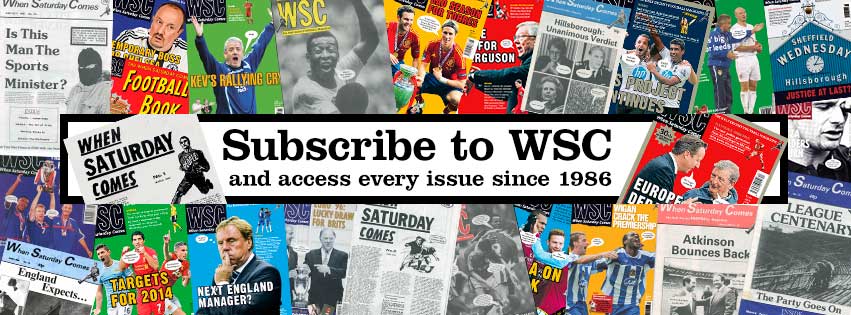Disproportionately stringent scheduling and crowd control measures have made fixtures between United and Wednesday the most expensive to police in the country
10 July ~ In July last year the BBC found that the most expensive game to police in the whole of British league football during 2017-18 was the Sheffield derby at Hillsborough, at a cost of £203,000. When it was also revealed that Rangers v Celtic, perhaps the most intense match in Britain, cost just £64,000, Sheffield football fans understandably wondered why. A satisfactory explanation has never been forthcoming. South Yorkshire Police deputy chief constable Mark Roberts tried to justify the figures but spoke only about how much policing football cost in relation to other operations, and the small proportion of the total that could be recouped from the local clubs. What he did not explain was why the cost of policing football in Sheffield was so high in comparison with everywhere else.
Six months later the police authority requested that future Sheffield derbies be scheduled for midweek dates because of the need to balance policing matches “while maintaining our high levels of service for the public”. DCC Roberts added: “In the current climate of police funding, we simply can’t afford to continue subsiding football matches, and every officer deployed, or pound spent on policing games, is money and time taken away from neighbourhood policing or supporting vulnerable people.” He did not, however, explain why policing midweek matches is easier and cheaper than controlling weekend matches.
When the March 2019 derby was moved to a Monday night by Sky, thousands of fans of both teams had to compete for space with commuters and shoppers on the already logjammed rush-hour roads and tram route between the city centre and Hillsborough. How this scenario was logistically preferable to playing at the weekend was beyond the comprehension of most Blades and Owls fans, and also no doubt the frustrated people trying to get home from work. But what Sheffield football fans did understand was that the police authorities in Glasgow, Edinburgh, Liverpool, Manchester, Birmingham and London had not requested that their derbies be played in midweek. Nobody could tell us why Sheffield was such a special case.
Other aspects are just as perplexing. A few years ago South Yorkshire Police invested in some enormous mobile steel barriers and seemed determined to use them as often as possible, whether they were needed or not. Thus, United home games considered a “risk” involve Blades fans being denied access from John Street into Bramall Lane and forced to go the long way round to get to where they could have walked in two minutes. By doing this, the police don’t defuse tensions; they add to them by antagonising people who just want to go home, not fight with opposing supporters. On top of this, the mysterious Safety Advisory Group decrees that large blocks of seats – in separate stands – at both Sheffield grounds remain unused so that home and away fans are kept a long distance apart. At many other grounds, home and away fans are housed in the same stand with just a line of stewards and a narrow strip of covered seats between them. Why is it safe to do this elsewhere, but not in Sheffield?
Then in June, Sheffield Brightside and Hillsborough MP Gill Furniss entered the debate by calling for football clubs to help out more with policing costs. Predictably, the press picked up on Furniss’s incendiary line that “we all love the game but we need it to be policed properly if we aren’t to go back to the bad old days” instead of concentrating on the more valid parts of her statement: that the police forces of England and Wales have lost 20,000 officers since 2010, and that Premier League clubs can certainly afford to contribute more to the policing bill. The counter-argument is one of why football clubs should pay towards policing costs when arguably larger sources of violence and arrests – city centre pubs and clubs, or marches and demonstrations – do not.
South Yorkshire Police might stress that their policy has proved effective. While the total number of football banning orders and football-related arrests has fallen steadily since 2010, according to Home Office figures, Sheffield United had the third-most banning orders and second-most arrests in 2017-18. But the heavy criticism has prompted the force to change their approach for the coming season, offering a more “community style” of policing. That this announcement came after it was confirmed that the two clubs would play in different divisions next season is surely no coincidence. Whether the stance is maintained should they draw each other in a cup competition is the real test for their fresh outlook.
Those of us who live in the city have an idea why the local police are so cautious about any football-related incident that might reflect badly on them, which is why they have employed such stringent prevention and containment measures. Think back just over 30 years and you have the answer. Matthew Bell
This article first appeared in WSC 389, August 2019. Subscribers get free access to the complete WSC digital archive – you can find out more here
